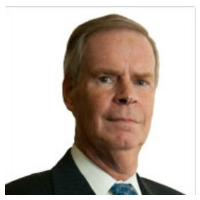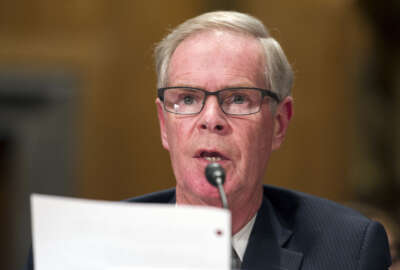
Spike in improper payments is part of the storm before the calm
David Mader spent the last two years as the controller at the Office of Management and Budget working with the Treasury Department and other agencies to try to get...
Improper payments increased for a fourth straight year in 2016. Despite the $7 billion increase over the year before, David Mader, the former Office of Management and Budget controller, said there is good reason for the steady increase to the bottom-line number.
Mader, who joined Deloitte at the end of January as its chief strategy officer for civilian sector, said agencies are making progress in addressing improper payments even with the totals rising to $144 billion.

“The percentage of improper payments went up this year in 2016 as well as the total dollars. But when you look at it over time, and I’ll take us back to the beginning of the Obama administration, if you look at 2009 and you look at 2016, the percentage is lower even though the dollars are higher,” Mader said during an exit interview with Federal News Radio reflecting on his two years as OMB controller. “The one thing I think we’ve achieved in the last two-plus year is a much better understanding of the composition of improper payments. What is actually driving a payment to be improper? When I came in we only had three categories that you could classify a payment as to why it was improper. We now have 13 categories and agencies are required, starting in 2015, to use these categories. It gives us a better sense of understanding.”
Mader said improper payments can result from anything from a medical provider forgetting to fill out a form correctly to overpayments to underpayments to out-and-out fraud.
Before leaving OMB in January, Mader said the administration was trying to figure out just how much fraud existed in federal programs and was accounted for in the improper payments figures versus how much they could attribute to administrative errors.
He said by understanding the different challenges, agencies can improve business processes and use technology to reduce the administrative mistakes, and focus their resources on rooting out waste, fraud and abuse.
Mader said lawmakers will look to the new OMB director and controller to break down the numbers and provide potential solutions to address the fraud side of the equation.
“There is a lot we have done in the last couple of years around requesting legislative changes. Since 2014, probably in every president’s budget, there has been dozens of program integrity initiatives where we need new legislation or legislative tweaks,” he said. “I think the Trump administration has a good roadmap and I think will be effective in working with the Congress to get some of those legislative changes made.”
Mader said one example where agencies need Congress’ help is getting the Treasury Department’s Do No Pay List tool to have access to the Social Security Administration’s death master file. He said instead Treasury has to spend money to buy a commercial version of the list.
“We have been asking for that legislative fix. We need to get different authorization committees together to change the Social Security Act so Treasury actually can have access,” he said.
OMB launched the Do Not Pay List tool in 2012 as a place for agencies to check both individuals and companies before paying out any money. The tool combines a number of federal resources into a single access point.
Mader said another big challenge that OMB has begun to address around improper payments is so much of the federal money goes through the states.
Take Medicaid payments, the Centers for Medicare and Medicaid Services sends $346 billion in block grants to states. The state agencies then spend the money to take care of citizens.
“We started working back in October with the Government Accountability Office to start thinking about how do we better leverage the state controllers and state auditor generals in helping us and helping themselves eliminate improper payments,” he said. “There’s been some interesting initiatives, particularly the Department of Labor where they pulled together a series of larger states to build a collaborative fraud center to work on fraud around unemployment insurance.”
Mader said OMB realizes there is no one solution to addressing improper payments. He said it’s a combination of technology, business process re-engineering and data analytics, especially on the front end.
Mader said he also holds out a lot of expectation for the Digital Accountability and Transparency Act (DATA Act) to improve the government’s improper payment rate.
OMB and Treasury have been leading the effort to implement the law with a goal of putting all acquisition data online by May 2017.
He said when the DATA Act is fully implemented, the transparency of the spending will be helpful in understanding where potential areas of fraud exist.
Mader said he feels good about the progress the government has made with improper payments over the last two years despite the increase in total dollars.
Copyright © 2025 Federal News Network. All rights reserved. This website is not intended for users located within the European Economic Area.
Jason Miller is executive editor of Federal News Network and directs news coverage on the people, policy and programs of the federal government.
Follow @jmillerWFED





